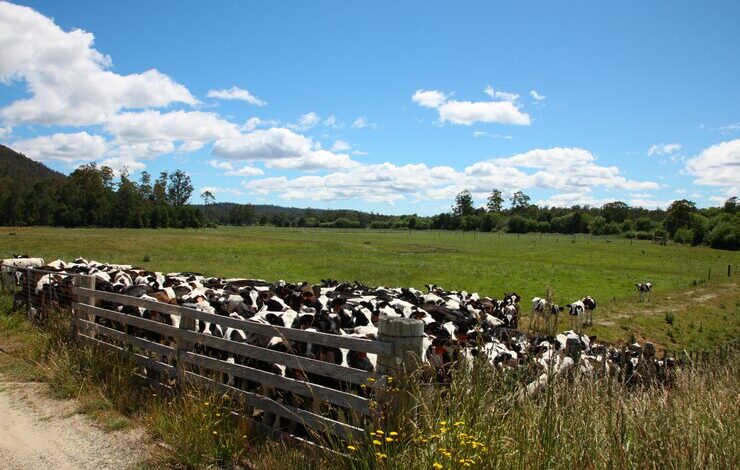Tsholotsho’s Ngamo Livestock Farm: A Model for Sustainable Agriculture and Conservation

Tsholotsho has taken a groundbreaking step toward sustainable agriculture and conservation with the launch of the Ngamo Livestock Farm and Agricultural Training Project. This pioneering initiative, spearheaded by Wilderness through Children in the Wilderness in partnership with the International Union for Conservation of Nature (IUCN), aims to mitigate human-wildlife conflict while boosting local livelihoods.
Situated between the rural communities of Ngamo and Ziga, near Wilderness Linkwasha in Hwange National Park, the farm is part of the Kavango–Zambezi Transfrontier Conservation Area. Officially launched in July last year, the project seeks to leverage the region’s suitability for livestock farming by establishing a community farm equipped with an abattoir while also providing vocational training opportunities for locals. The courses offered will be HEXCO-certified, ensuring that students receive accredited agricultural education.
Speaking at the project’s opening, Environment, Climate, and Wildlife Minister Sithembiso Nyoni emphasized its significance in balancing agricultural productivity with conservation efforts.
“This project is very important because it’s trying to manage human-wildlife conflict,” she said. “What ZimParks is doing here ensures that animals are kept away from people by providing them with food and water while humans coexist in a controlled environment.”
A Holistic Approach to Conservation and Economic Empowerment
The Ngamo Farm and Agricultural Training Project integrates livestock breeding, pasture management, feed formulation, and conservation-based farming techniques. With 40 students already enrolled, the initiative is shaping a new generation of skilled livestock managers and conservationists.
Tsholotsho, a region historically plagued by human-wildlife conflict, has long struggled with elephants and predators threatening both crops and livestock. To address this, the project incorporates predator-proof kraals and a pilot mobile predator-proof system designed to protect cattle while maintaining ecological balance.
“You can see the way the kraals are organised,” Nyoni noted. “Even if lions or elephants come, they will not be able to reach livestock. This is conservation and human-wildlife relationship management at its best.”
The initiative aligns with Zimbabwe’s National Development Strategy 1 and the SADC Biodiversity Strategy and Action Plan 2025-2035, which emphasize biodiversity conservation, sustainable resource management, and economic empowerment.
Economic Opportunities for Tsholotsho Communities
Beyond conservation, the Ngamo project is set to become an economic driver for Tsholotsho. Wilderness Zambezi Impact Manager Sue Goatley highlighted key sustainability efforts, including expanding Herding for Health practices—training farmers in sustainable grazing methods to restore habitats and reduce human-wildlife conflict.
She also noted that partnerships with private-sector buyers, such as Wilderness Safaris camps, would provide consistent income streams for local farmers.
Additionally, the project plans to establish an abattoir to improve meat quality and revenue for farmers while expanding cattle and goat breeding programs to enhance livestock productivity.
“As we gather here today, let us reaffirm our commitment to conservation, community upliftment, and sustainable development,” Goatley said. “Together, we have the power to create positive change and build a legacy of hope and prosperity for all.”
A Blueprint for Regional Development
SADC TFCA Financing Facility team leader Kudakwashe Chigodo emphasized that the initiative was not only for the Ngamo communities but also for the broader region.
“This is a demonstration of the early results of the work being supported by the SADC TFCA financing facility,” she said. “We hope to learn valuable lessons from this project and use it as a model to support similar initiatives in other communities.”
Chigodo added that the long-term vision includes raising additional funding to either scale up the project or support new conservation-based initiatives.
Local leader Chief Matupula expressed his gratitude, emphasizing the initiative’s positive impact on the community.
“This programme will benefit residents, and currently, 40 students are enrolled,” he said. “We are proud to have such an initiative in our area. Students will learn farming, livestock management, and other essential skills.”
As the Ngamo Livestock Farm and Agricultural Training Project gains momentum, it stands as a beacon of hope for sustainable development, conservation, and economic empowerment in Tsholotsho and beyond.




